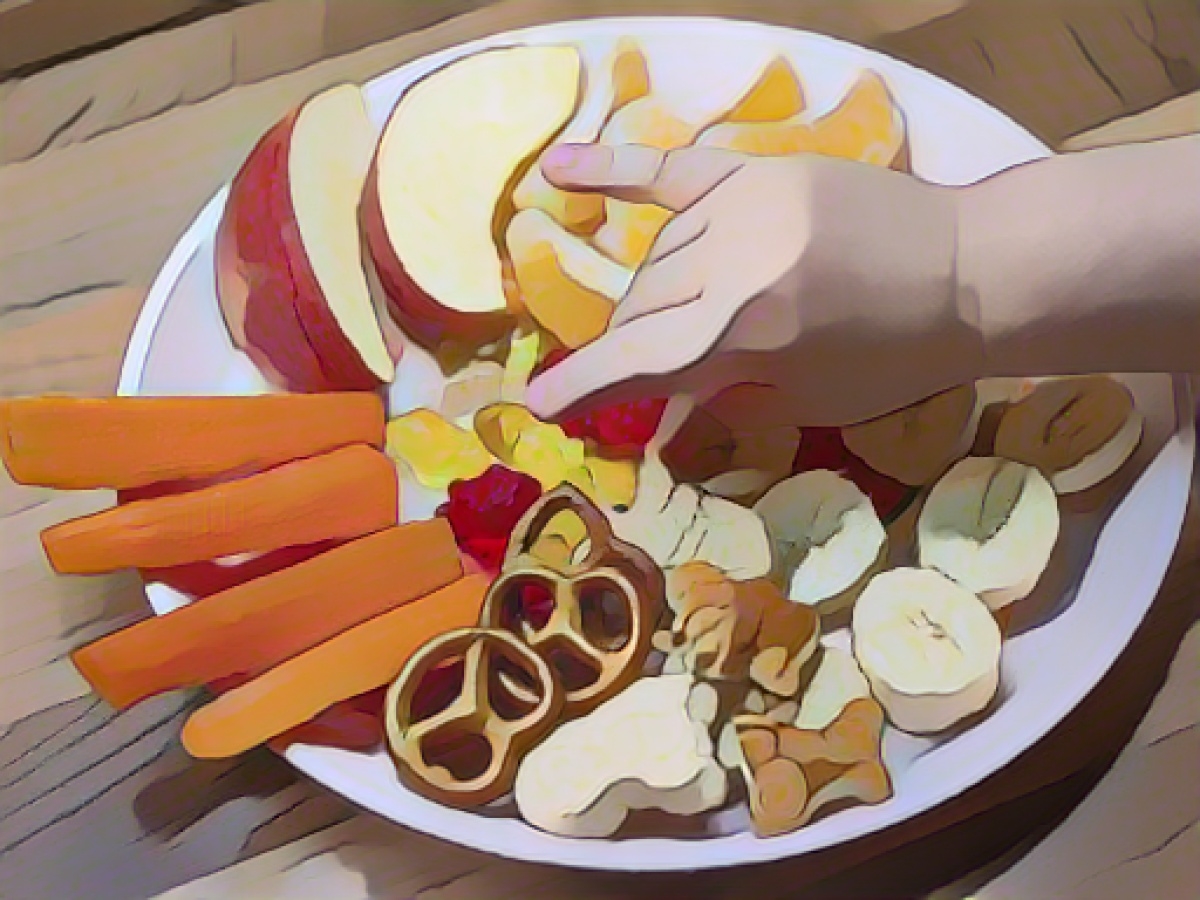Boredom makes children eat more
Bored children eat more - a lot more, as a study shows. Within four minutes, bored children consumed an average of around 80 percent more kilocalories than children in a control group, reports a research team led by Claire Farrow from Aston University in Birmingham in the journal "Food Quality and Preference". If children eat so many calories during a single four-minute bout of boredom, the potential for excessive calorie intake over the course of a day, a week or a year is high.
In certain situations, such as long train or car journeys, it is generally okay for children to eat more, said Antje Gahl from the German Nutrition Society (DGE). Parents can even make targeted use of this by putting healthy things in the box that might not otherwise be so popular. "Children then eat what's there." In general, it makes sense to take healthy items such as fruit and vegetables with you when traveling; a small chocolate bar or a handful of jelly babies are also fine.
The dangers of emotional feeding
Apart from such rare situations, however, children should not feed out of boredom or for comfort in everyday life, explained Gahl. This could lead to harmful habits that last into adulthood. "Eating habits are very much shaped in childhood."
It is tempting to use food to soothe children, explained study leader Farrow. But she also warned that this behavior, known as emotional feeding, could lead to children confronting negative emotions with food later on, even as adults. "It is important that parents and caregivers are aware that this short-term solution can lead to problems in the future."
In the British experiment, around 120 four and five-year-old children were divided into groups. All of them were promised that they would be allowed to do a puzzle and then receive a small gift.
Some of the children - the boredom group - first had to sit at the table and wait for a few minutes. Each of these children then had to wait another four minutes, but could now either help themselves to snacks such as cookies, potato chips and carrot sticks or occupy themselves with toys. Only then were they allowed to do the puzzle.
Other children - the control group - were not bored by waiting times. They solved the puzzle straight away, after which they were also given the choice of helping themselves to the snack bowls or playing for four minutes.
A varied and diverse range of activities
Children in the boredom group consumed an average of 42 kilocalories - almost 80 percent - more during the four minutes of snacking than children in the control group. The effect was particularly pronounced if the parents regularly used sweets in their everyday lives to calm or occupy their children.
According to the DGE, children aged four to six need 1300 to 1800 kilocalories (kcal) a day. A varied and diverse range of foods is important, said Gahl. Sweets and snacks should make up a maximum of one tenth of the daily energy intake. "For four to six-year-olds, that's around 150 kilocalories a day. That corresponds to about 20 gummy bears, 40 grams."
Conditions such as "first the vegetables, then there's something sweet" or deprivation of sweets as a punishment should be avoided, as should snacking on the side, for example while watching television. "It's easy to lose control, and it's no different for an adult watching TV." Mealtimes together, where cell phones and other devices are banned from the table, are key, says Gahl. Here and in many other situations, parents should be aware that they are also role models for their children when it comes to nutrition, for better or for worse.
While the study reveals that bored children consume more calories, Antje Gahl from the DGE emphasizes that emotional feeding or feeding out of boredom should be avoided in children's everyday lives. This habit could lead to harmful eating patterns that persist into adulthood, she warns, referring to how deeply formed eating habits are during childhood. In accordance with the DGE guidelines, Gahl advises that sweets should make up no more than 10% of a child's daily energy intake, equivalent to around 150 kilocalories for children aged 4-6, who need a total of 1300 to 1800 kilocalories a day.
Source: www.dpa.com






